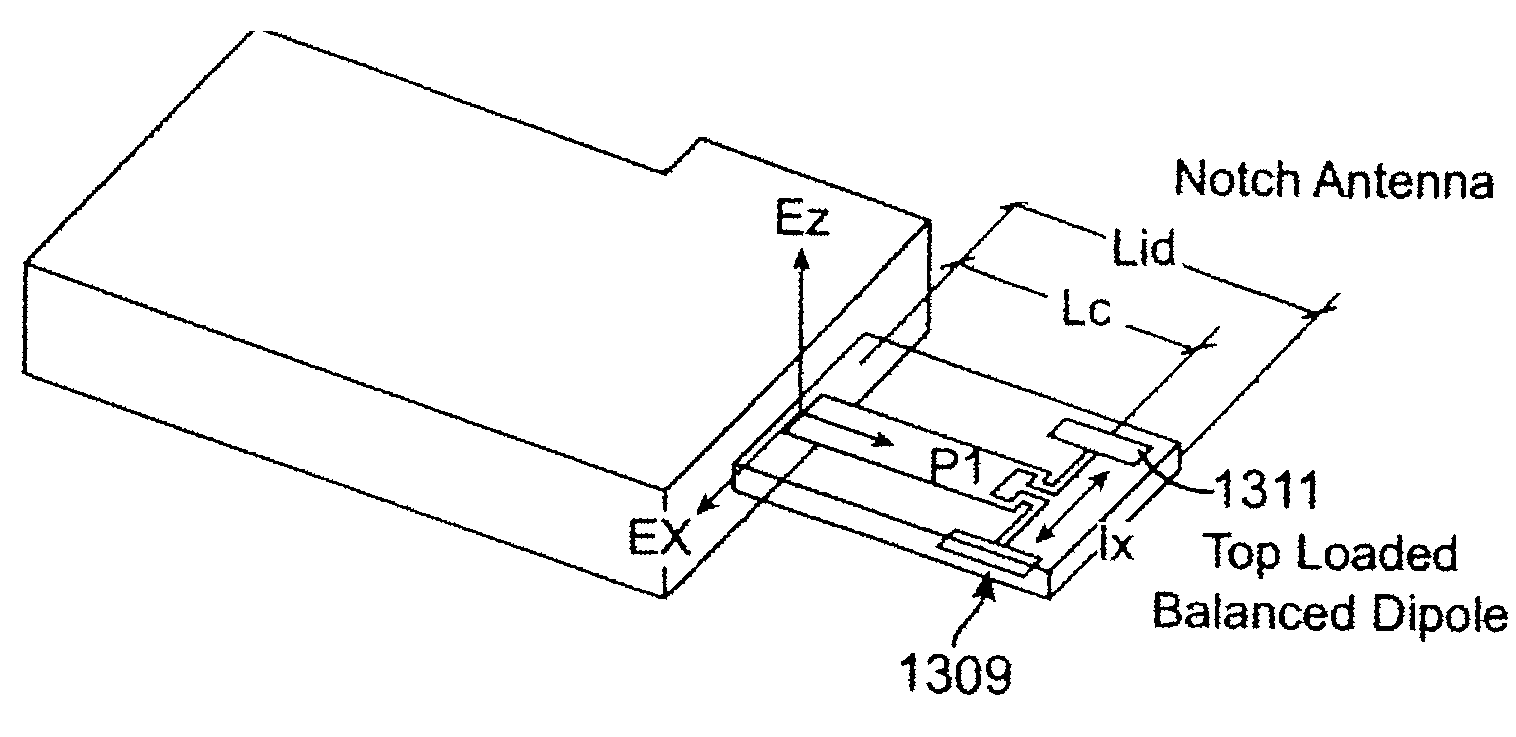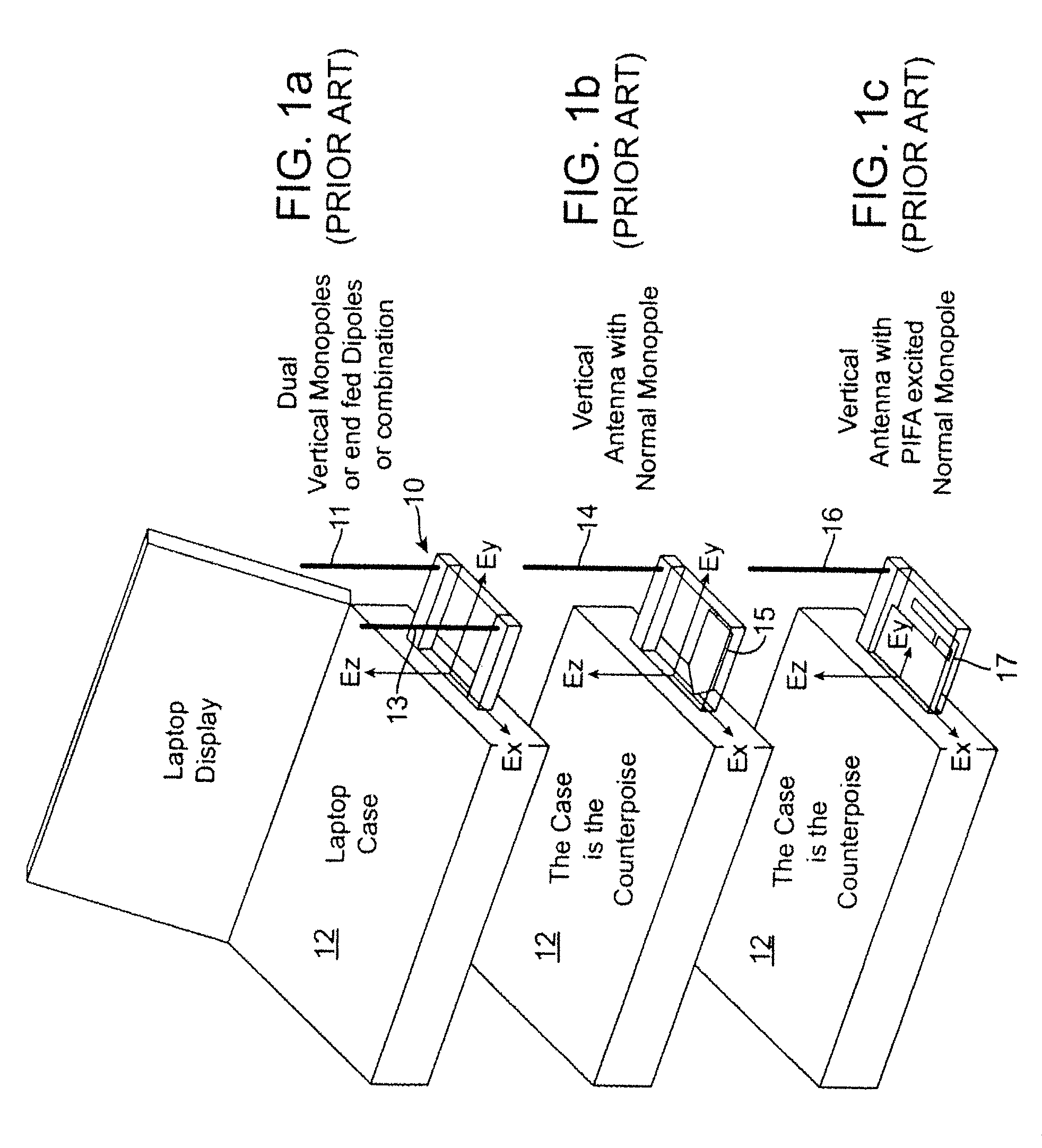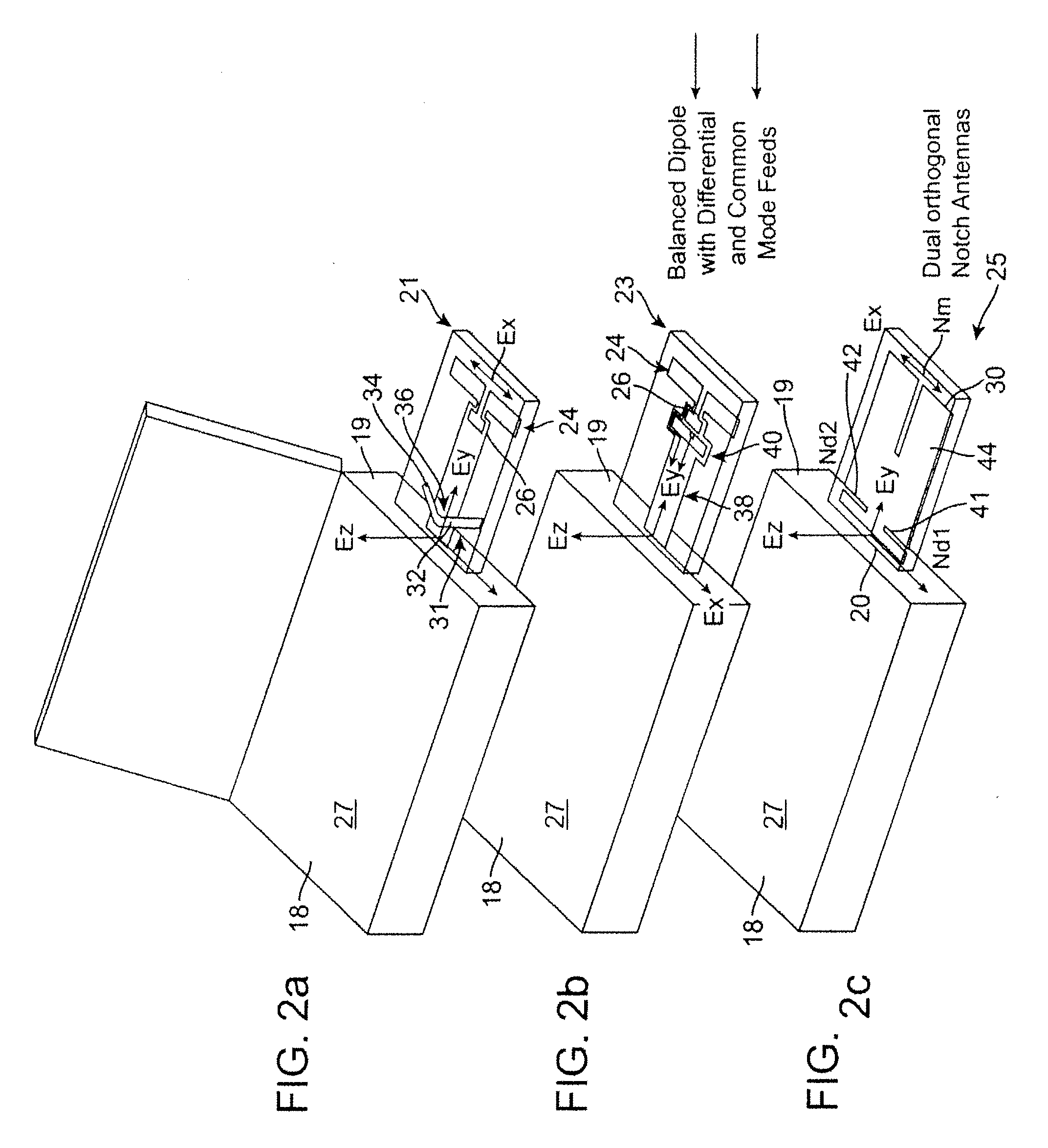Antenna Configurations for Compact Device Wireless Communication
a wireless communication and compact device technology, applied in diversity/multi-antenna systems, duplex signal operation, polarisation/directional diversity, etc., can solve the problems of reducing the overall received radio throughput, signal strength degradation, and reducing so as to reduce the overall antenna dipole arm length, reduce current density, and reduce the effect of sar
- Summary
- Abstract
- Description
- Claims
- Application Information
AI Technical Summary
Benefits of technology
Problems solved by technology
Method used
Image
Examples
Embodiment Construction
[0067]The description herein is provided in the context of antenna configurations for compact device wireless communication. While explained in terms of a laptop computer as a host device, and a PCMCIA or similar PC card as the wireless communication device, it will be appreciated that the invention is not so limited, and other host devices, such as PDAs and desktop computers, and other wireless communication devices for establishing wireless communication through a cellular network or through Bluetooth™, WiFi™ and other types of wireless links and channels are also contemplated. Moreover, the principles of the invention are not restricted to communication devices that are designed to mate with host devices to provide wireless capability thereto, but are more generally applicable to cellular telephones, two-way radios, and other self-contained wireless communication devices that may be equipped with their own antennas or antenna systems.
[0068]Those of ordinary skill in the art will ...
PUM
 Login to View More
Login to View More Abstract
Description
Claims
Application Information
 Login to View More
Login to View More - R&D
- Intellectual Property
- Life Sciences
- Materials
- Tech Scout
- Unparalleled Data Quality
- Higher Quality Content
- 60% Fewer Hallucinations
Browse by: Latest US Patents, China's latest patents, Technical Efficacy Thesaurus, Application Domain, Technology Topic, Popular Technical Reports.
© 2025 PatSnap. All rights reserved.Legal|Privacy policy|Modern Slavery Act Transparency Statement|Sitemap|About US| Contact US: help@patsnap.com



